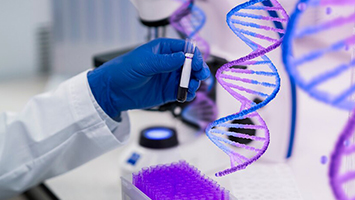
Molecular Testing & Risk Stratification
Molecular testing and risk stratification are essential steps in modern blood cancer care. These techniques analyze the genetic and molecular features of cancer cells to guide diagnosis, predict disease behavior, and personalize treatment. By identifying specific mutations and risk categories, doctors can tailor therapies that improve outcomes and avoid unnecessary treatments.
Why It’s Important
- Identifies key genetic mutations and abnormalities in blood cancers.
- Helps predict how aggressive or slow-growing the disease may be.
- Guides the choice of targeted therapies and clinical trials.
- Improves accuracy of prognosis and treatment planning.
Types of Molecular Tests
- Next-generation sequencing (NGS) for broad mutation profiling.
- FISH (Fluorescence in situ hybridization) for chromosomal changes.
- PCR-based tests for specific mutations (e.g., BCR-ABL in CML, JAK2 in MPN).
- Cytogenetic analysis for karyotyping and chromosomal rearrangements.
Risk Stratification
- Classifies patients into low, intermediate, or high-risk categories.
- Supports decisions on whether to start treatment immediately or monitor closely.
- Determines intensity of therapy such as standard vs. aggressive treatment.
- Essential for transplant planning and long-term management strategies.
Benefits for Patients
- Ensures personalized and precise treatment.
- Reduces unnecessary side effects from ineffective therapies.
- Opens access to novel targeted drugs and clinical trials.
- Improves overall survival and quality of life through individualized care.
